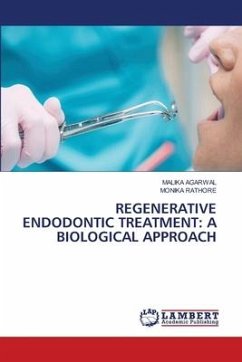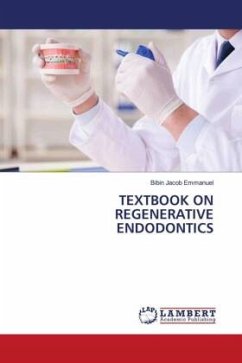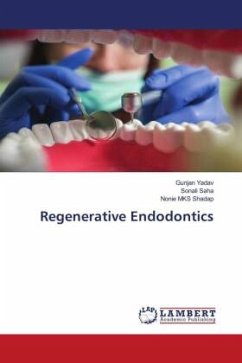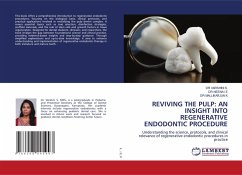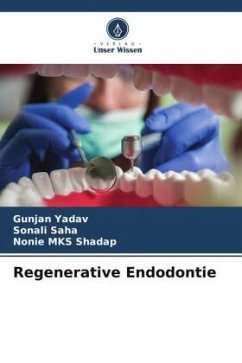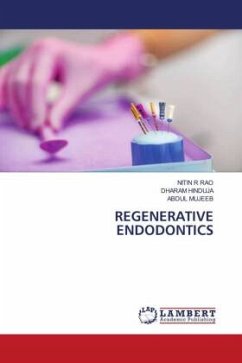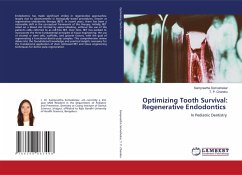
Optimizing Tooth Survival: Regenerative Endodontics
In Pediatric Dentistry
Versandkostenfrei!
Versandfertig in 6-10 Tagen
40,99 €
inkl. MwSt.

PAYBACK Punkte
20 °P sammeln!
Endodontics has made significant strides in regenerative approaches, largely due to advancements in biologically based procedures, known as regenerative endodontic therapy (RET). In recent years, there has been a noticeable shift in the conceptual framework of this therapy. Initially, RET relied on a blood clot formed by apical bleeding, without the use of the patient's cells-referred to as cell-free RET. Over time, RET has evolved to incorporate the three fundamental principles of tissue engineering: the use of stromal or stem cells, scaffolds, and growth factors, with the goal of regeneratin...
Endodontics has made significant strides in regenerative approaches, largely due to advancements in biologically based procedures, known as regenerative endodontic therapy (RET). In recent years, there has been a noticeable shift in the conceptual framework of this therapy. Initially, RET relied on a blood clot formed by apical bleeding, without the use of the patient's cells-referred to as cell-free RET. Over time, RET has evolved to incorporate the three fundamental principles of tissue engineering: the use of stromal or stem cells, scaffolds, and growth factors, with the goal of regenerating a functional dentin-pulp complex. This comprehensive review delves into the foundational knowledge and practical insights necessary for the translational application of stem cell-based RET and tissue engineering techniques for dental pulp regeneration.






